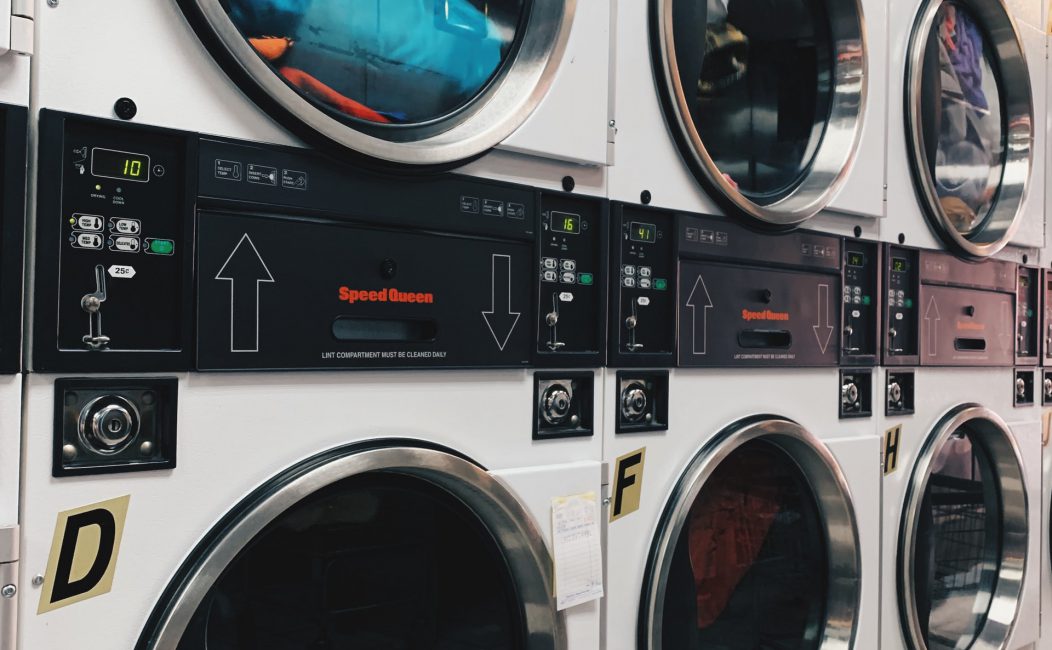【Event Summary】Future of Washing Initiative Seminar: Sustainable Laundry Part 2 – Perspectives on Water and Energy –

The Future of Washing Initiative held its Second Seminar on the theme of “Sustainable Laundry – Perspectives on Water and Energy” on 1 September, 2020. It was the first time to hold this seminar online, and about 40 participants from businesses and academia took part in this active discussion, with Yohei Kaneko, Vice President of ESG- Promotion at Kao Corporation as the moderator and MC.
Opening Remarks and Seminar Introduction
The seminar kicked-off with opening remarks from Kasuga Fumiko, Global Hub Director, Japan of Future Earth and Visiting Professor, Institute for Future Initiatives, The University of Tokyo. She introduced the Future of Washing Initiative’s aims and activities from when it was established in December 2018 until present, as well as the purpose of the Seminar. Next, Professor Yoko Yamaguchi of the Department of Science of Living, Kyoritsu Women’s Junior College, explained the concept of Life Cycle Assessment, which was the theme of the First Seminar, and is a methodology that calculates the environmental burden of products and services from resource extraction through production, distribution, use, recycle, and finally to end-of-life/disposal. Professor Yamaguchi also summarized the discussion and outcomes of the first Seminar, introducing the various unique ideas that were proposed by participants on how to solve the issues related to daily laundry practices.
Presentations: "Water, Climate Change and Sustainable Development" and "Developing Environmentally-Friendly Washing Machines"
Two presentations followed, the first on hydrology and climate change, and the second on innovative sustainable technologies in washing machines. The first presentation was by Professor Taikan Oki, Graduate School of Engineering, The University of Tokyo, and Senior Vice-Rector, United Nations University. He pointed out that precipitation intensity is increasing, so that the 100-year flood (flood that has a chance to occur once every 100 years) in the 20th century, will most likely occur frequently in the 21st century. He also explained the trade-off between CO2 emissions and water/energy use in washing dishes. Research shows that washing dishes by hand in cold water emits the least amount of CO2, however when using warm water, the amount of CO2 emitted is more than when using a dishwasher. On the other hand, using a dishwasher generally uses less water. He concluded with the point that in order to create a sustainable society, we must consider the nexus between water, energy, and food, and that this perspective is also important when thinking about sustainable laundry and washing.
The second presentation by Hirofumi Nagumo of Hitachi Global Life Solutions, Inc. showcased how different technologies in washing machines to reduce environmental impact have been developed. He explained that in an average washing machine the rinsing stage is when the most water is used. He then talked about a new technology that his company developed, “eco-water sensor” that analyzes 7 criteria such as the water’s hardness, temperature, detergent, material and amount of clothes, etc. and that adjusts the detergent amount, water usage, and laundry time. To save energy, it also features “heat-recycle drying” which collects the operating heat and uses it in the drying phase. They also developed new models of washing machines that have Artificial Intelligence incorporated, and that uses 9 sensing technologies to determine characteristics such as how dirty the laundry is, and that decides the best method of washing and washing time.
Break-out Group Discussions and Final Remarks
After the presentations by experts, the participants joined break-out sessions to have group discussions on the solutions towards more sustainable laundry from the three perspectives of consumers, technology, and social systems. Participants expressed the need for more information, such as the environmental impact of their laundry through knowing the amount of CO2 being emitted, or more education on sustainable laundry. Others expressed that it is important to have a general viewpoint on the environmental impacts of laundry by thinking about the full lifecycle, not just CO2 emissions. It was also pointed out that convenience and eco-friendliness can be achieved at the same time, such as choosing single-rinse detergent to save water and time. Regarding social systems, one group pointed out that the environmental impact increases as more individuals own a washing machine, so it might be beneficial to move towards a sharing model for washing machines, including outsourcing laundry to a business that uses the latest technology with lower environmental impact. Multiple groups also expressed the need to move towards an energy system with more renewable energy sources, to make the energy usage more sustainable.
After the group discussions, Professor Oki gave his final remarks, pointing out the need to also consider the aspect of fulfilling consumer’s need to feel cleanliness, in addition to energy and water usage when considering the future of laundry. He also encouraged participants to have more open-minded and free ideas on the laundry and washing machines they would want in the future.
Conclusion
The second seminar on Sustainable Laundry focused on energy and water and participants actively discussed how to decrease the environmental impacts. Many important ideas were discussed, such as the importance of knowing accurate information on laundry, informing the consumers on environmental impact, promoting a sharing model, and achieving both a convenient and environmentally-friendly lifestyle. We hope to continue discussions on how to achieve fun and sustainable laundry practices in the future.
[Additional Information]